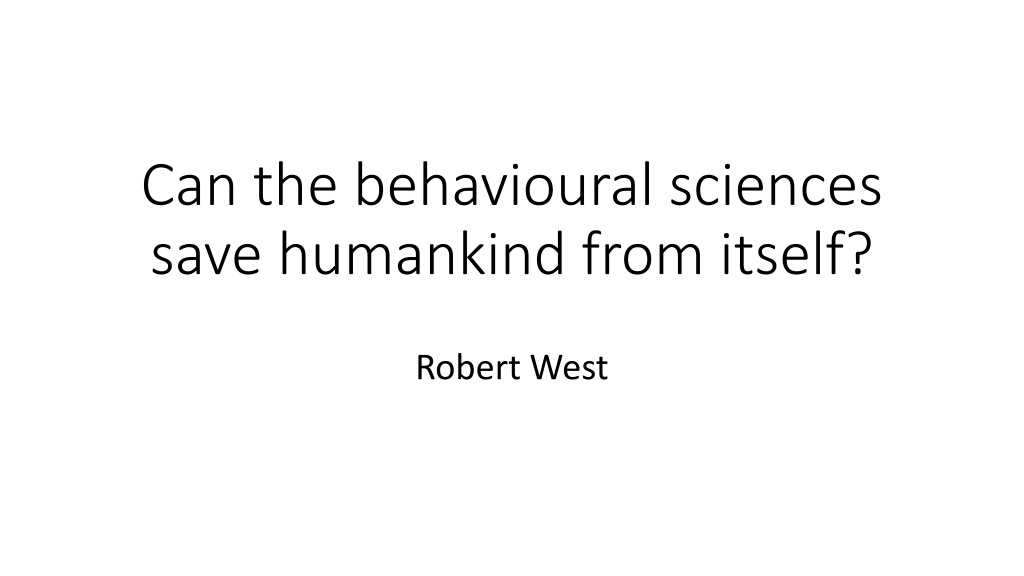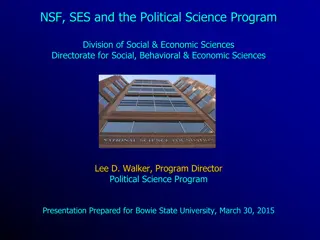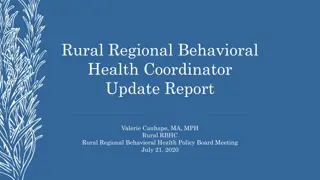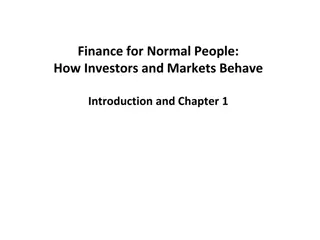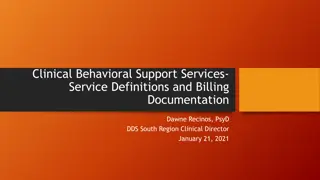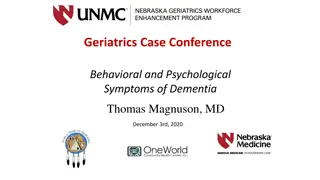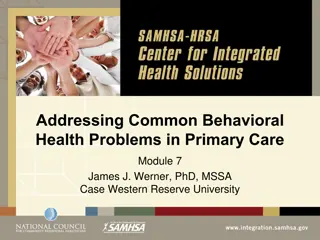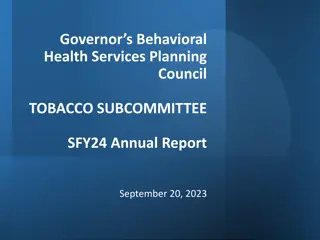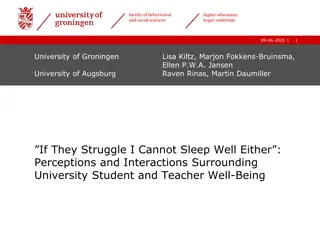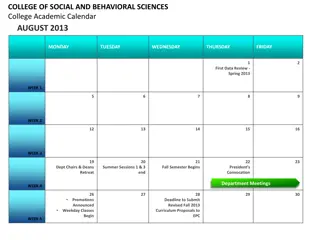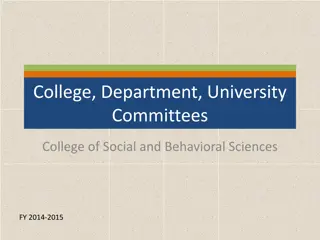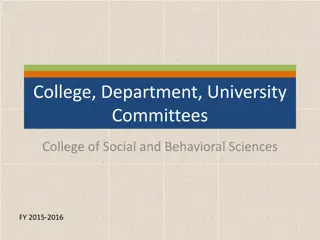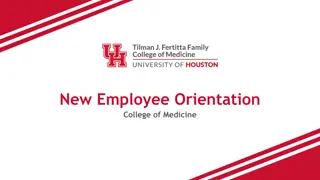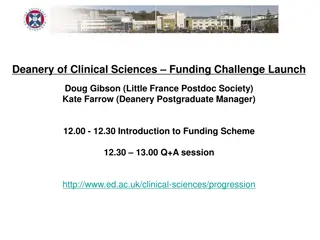Can Behavioral Sciences Save Humankind? Challenges and Potential Solutions
The behavioral sciences offer insights into human behavior and potential solutions to global challenges such as pollution, tobacco use, and pandemic preparedness. However, effective implementation faces hurdles such as lack of availability, utilization, and trust in government. The COVID-19 pandemic highlighted the importance of resilience, self-isolation norms, and government trust in managing crises.
Uploaded on Sep 23, 2024 | 0 Views
Download Presentation

Please find below an Image/Link to download the presentation.
The content on the website is provided AS IS for your information and personal use only. It may not be sold, licensed, or shared on other websites without obtaining consent from the author. Download presentation by click this link. If you encounter any issues during the download, it is possible that the publisher has removed the file from their server.
E N D
Presentation Transcript
Can the behavioural sciences save humankind from itself? Robert West
'solitary, poor, nasty, brutish and short' less 'solitary, poor, nasty, brutish and short on average
Continuing threats to human progress pollution tobacco alcohol diet sedentary behaviour poor sanitary practices violence
Newer threats to human progress energy use travel mistreating our habitat lack of pandemic preparedness mismanagement of resources misuse of antibiotics
Human downfall Human behaviour Human progress
Scientific disciplines that try to understand and predict behaviour psychology psychiatry sociology anthropology economics political science neuroscience behavioural pharmacology public health science and more Behavioural sciences
Combatting tobacco smoking Neuroscience & Behavioural pharmacology Effective treatment for cigarette addiction + Behavioural psychology
But ... Health systems mostly don t make it available Where it is available smokers mostly do not use it Where smokers do use it, service providers mostly don t deliver it to specification
Covid-19 Populations can be highly resilient and supportive of even very stringent measures Adhering to self-isolation is related to norms and affordability Trust in government is important to adhering to restrictions
But ... Lockdown was delayed by misplaced belief in lack of resilience Self-isolation was undermined by inadequate financial support Government figures showed themselves to be untrustworthy
Behavioural science findings Implementation
Behavioural diagnosis: Capability How far dop we need to: Raise their awareness of the behaviour? Help them understand how to do it? Help them understand the benefits of doing it or the costs of not doing it? Build up the skills and judgement needed to do it? Build their confidence that they can do it? Or maybe strengthen their resilience in the face of challenges?
Behavioural diagnosis: Opportunity How far should we: Create a sense that it is what people normally do? Provide them with social support? Populate their environment with prompts and reminders? Make sure they have the resources, equipment or facilities they need? Make it quick and easy to do?
Behavioural diagnosis: Motivation Should we prioritise: Getting them to consider it worthwhile? Getting them to feel a sense of pleasure, satisfaction or relief at the thought of it? Showing how it fits with their sense of self and who they are? Creating a strong sense of personal commitment to it? Making it a more immediate priority for them over other behaviours? Turning it into a habit or routine?
Take home messages The future of humankind depends on how far we can change the way we behave There is a science to changing behaviour: we should use and develop it We must apply the same scientific methods to getting discoveries implemented The COM-B model provides a framework for doing this unlockingbehaviourchange.com/pdf
